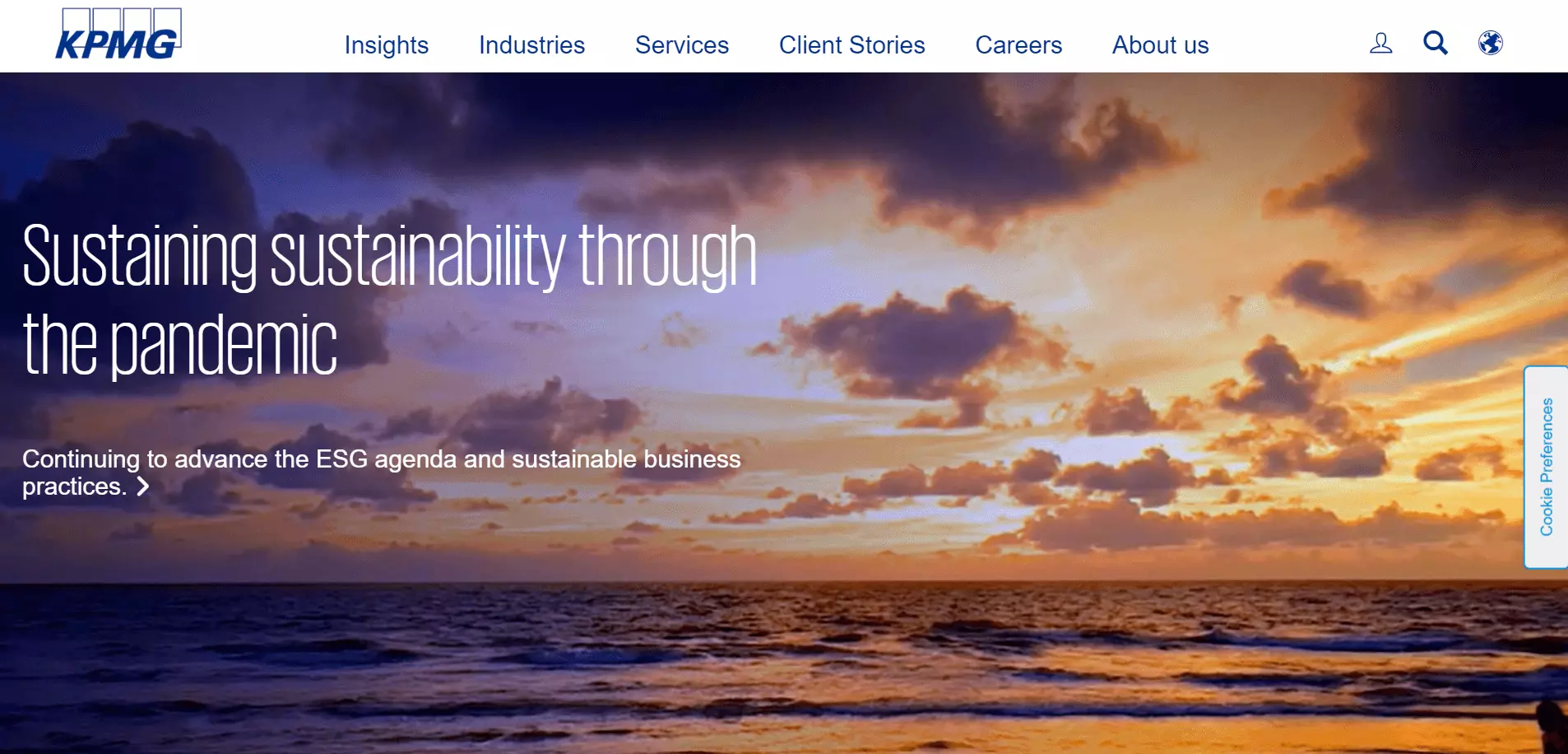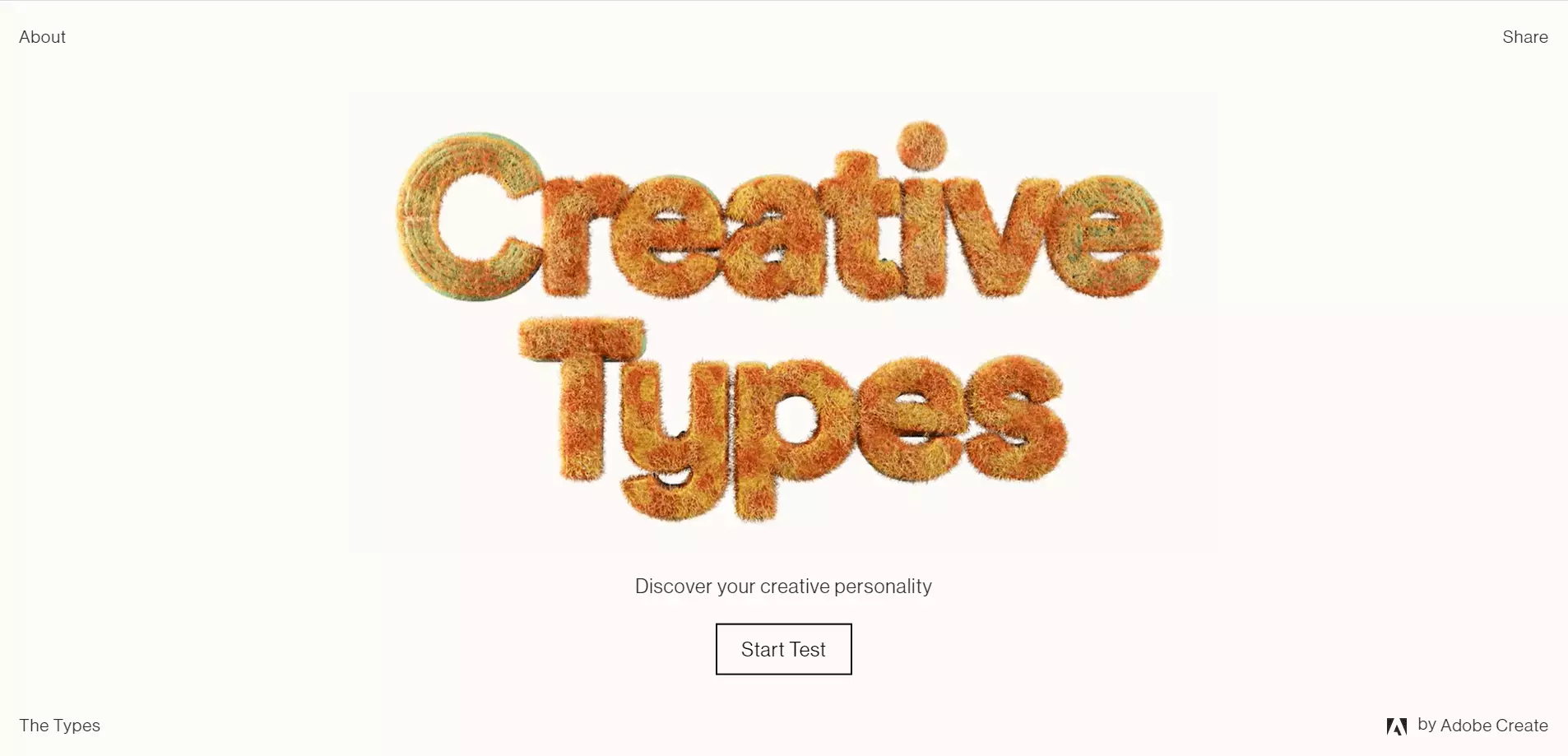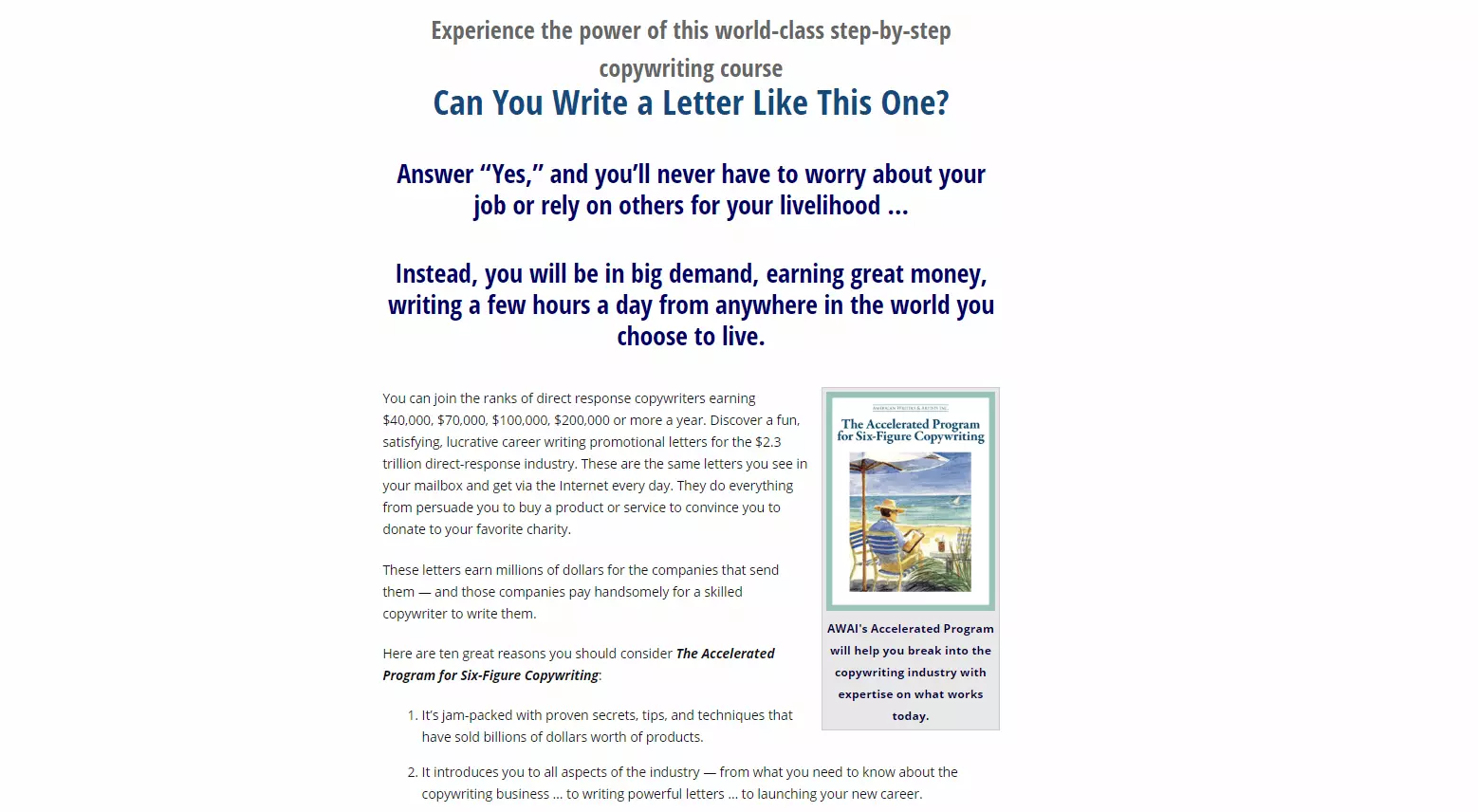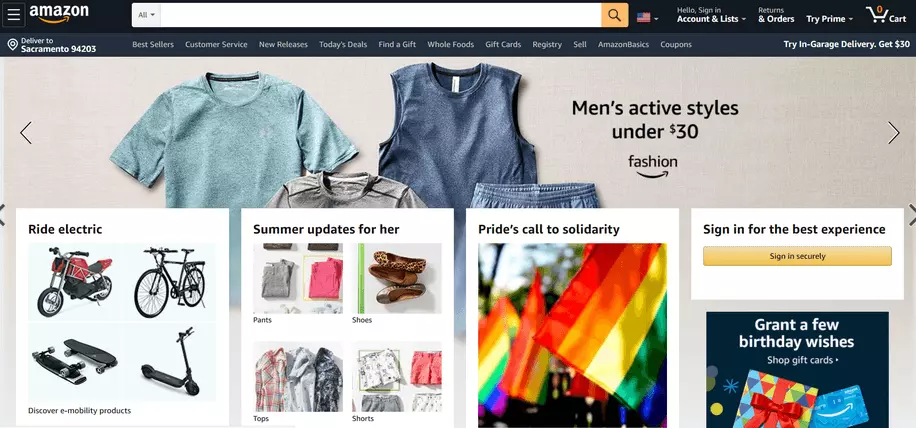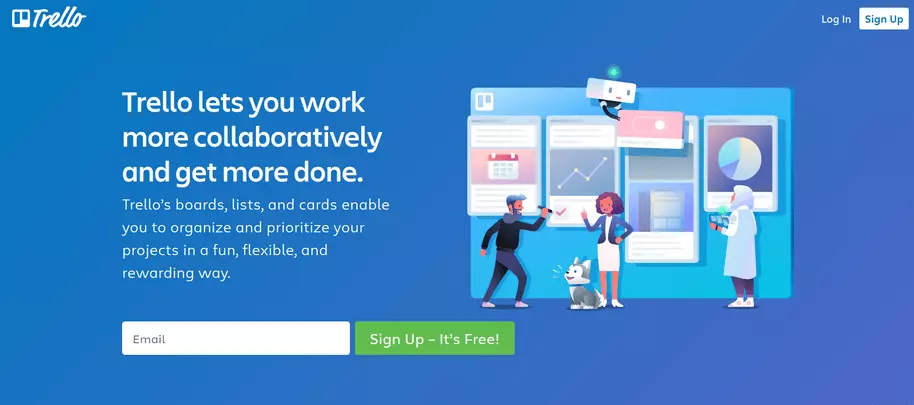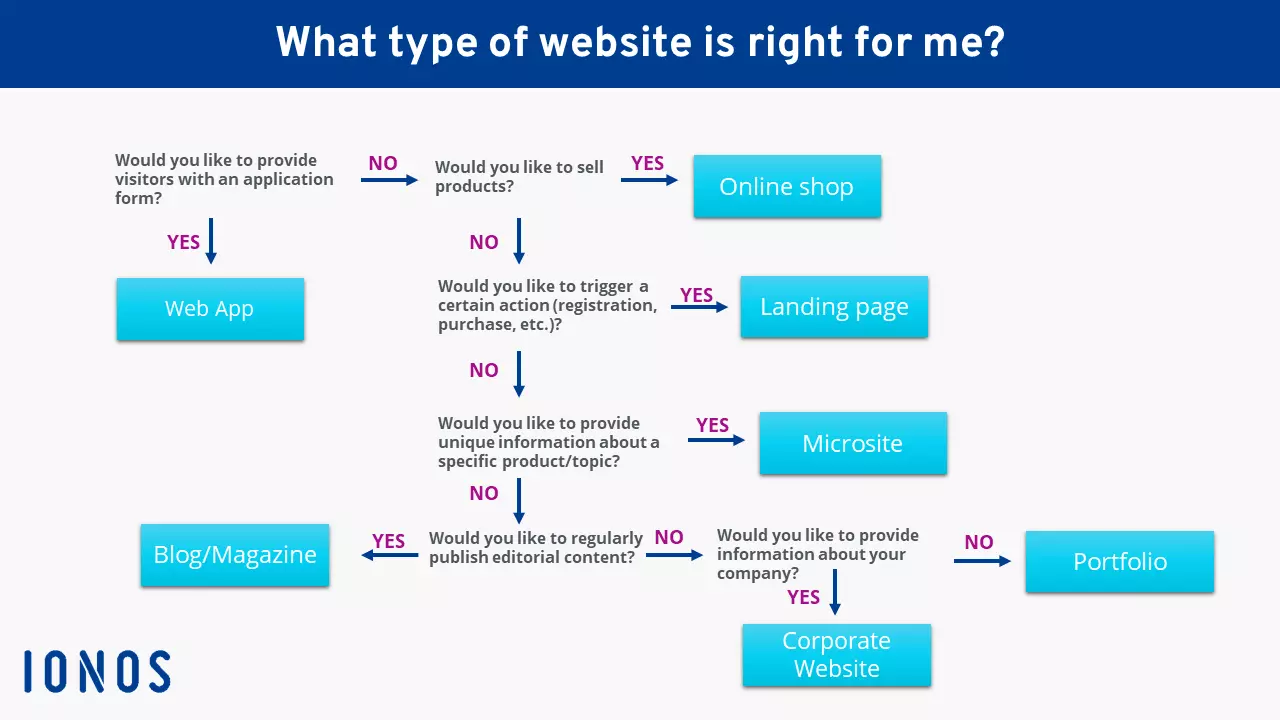Different Website Types compared
A good website is one of the basic building blocks of every successful modern company. But how should your website be designed? The short answer is: it depends what your goals is. Do you want to get people to sign up for an online course? Make a name for yourself as a photographer? Are you planning to sell jewelry, or do you want to create a blog? Depending on your response, your website might end up looking very different.
Whether you’re creating a website yourself or hiring a service provider, you need to think about what kind of website you want in advance. Ultimately, only you as an entrepreneur can make this kind of strategic decision. With our website typology, you will be able to make a clear decision about what type of website will suit you best.
- Intuitive website builder with AI assistance
- Create captivating images and texts in seconds
- Domain, SSL and email included
What types of website are out there? The 7 most popular website types
There are approximately 380 new websites created per minute on the Internet.
Not all of these websites will fall into the seven categories we present here, especially since they are not always easy to define. However, we have chosen this typology to introduce you to the most important website types and highlight their distinctive differences.
Corporate website
For whom is this suitable? Companies, agencies, and the self-employed
Purpose: Presenting your own business and providing contact options
The classic corporate website is what might first pop into your mind when you picture a website: a compilation of several individual pages with the primary goal of providing information to the visitor.
The company presents its services and team and provides different means of contact. The corporate website functions effectively as the company’s digital business card. However, websites can also contain dynamic elements, like a news or blog section, whose content is regularly updated. Large websites often integrate other types of website, like landing pages or microsites, so that organizations can pursue different goals with their Internet presence.
In order to make their brand or website known to the target group, companies should implement additional measures such as search engine marketing.
An example of a classic corporate website is the KPMG site:
If you want to create a corporate website yourself, but have little to no programming skills, you can use kits like MyWebsite Homepage Builder. These kits make it easy to achieve professional results. Alternatively you can hire an agency so that experts can design and implement your website according to your own specifications.
In colloquial terms, a corporate website is often referred to as a homepage. However, this is misleading, because “homepage” actually just means the main page of a website.
Portfolio
For whom is this suitable? Artists and creatives
Purpose: Presenting primarily visual work samples
Portfolio websites are optimized to present visual works in an appealing way. This kind of website is ideal for designers, photographers, or artists.
Website themes for portfolios are characterized by an airy, often minimalist design that focuses on the graphic elements and work samples presented directly on the homepage. In contrast to the corporate website type, there is usually a reduced amount of text.
A portfolio website can also be easily implemented without a lot of technical knowledge: CMS like WordPress offer a huge selection of themes that you can easily customize and fill with content. The only technical hurdle is hosting. Choose a provider that specializes in WordPress hosting and supports 1-click WordPress installation. IONOS offers low-cost packages suited for beginners with their WordPress hosting packet.
What does a portfolio website look like? Portrait photographer Martin Schoeller’s site is a fairly typical example of this kind of website.
If you want to create a portfolio website yourself, you should be sure to present only your best work. Less is more, and you are better off showcasing your best work than crowding your page with too many average pieces.
- Create & customize your site with AI tools made for everyone
- 3x faster: SSD, caching & more
- Daily security scans, DDoS protection & 99.98% uptime
Blog or magazine
For whom is this suitable? Bloggers, businesses, journalists, influencers
Purpose: Regular editorial content or entertainment
A blog or magazine website focuses on editorial content. Do you want to make a regularly updated report on Bitcoin? Are you planning a local online newspaper? While blogs sometimes greet visitors with a static homepage, online magazine homepages are usually similar to classic print magazines. They give a direct overview of the latest content.
Some blogs and online magazines also offer products and services centered around a particular subject. However, this is not their primary function. Current and regularly updated content is the most important aspect, which is also reflected in the website’s design.
You can see how this look is done in practice on the Smashing Magazine website:
However, maintaining a blog requires a lot of work. Be sure to consider whether you can run your blog or online magazine alone, or whether you are better off finding a team of authors to create the content for you. This may be a good choice since one of the most important things when running a blog is providing consistent content. There shouldn’t be lengthy gaps between articles if you want your blog to become a trusted source of information and attract loyal readers.
If you need help with your blog’s technical setup, use our step-by-step guide to setting up a blog.
If you want to know more about how much it costs to create a website, chek out our article on the topic!
- Sell on social media in minutes
- Manage it all from one platform
- Works with any product or service
Microsite
For whom is this suitable? Businesses
Purpose: Information or entertaining content on a specific topic/product
A microsite is the corporate website’s younger sibling: Providing information is the main focus. However, the microsite is limited to just a few subpages or even just one main page. A concrete new product or clearly defined topic is presented, as opposed to a full website that addresses a broader range of topics and service information.
Microsites are often characterized by eye-catching designs that showcase a product or theme. This type of website relies on interactions, animations, and media diversity to create a positive user experience.
Landing page
For whom is this suitable? Businesses, the self-employed
Purpose: Lead generation or purchase completion
Landing pages are one-page websites, whose purpose is to inform visitors about a specific product and motivate them to take a specific action. This kind of website has a distinctly advertisement-heavy character, and there are no subpages. Instead, landing pages resemble a detailed sales page and are often enriched with videos and graphics.
In the best-case scenario, the user consumes content in a flow and is ultimately willing to pay for a physical or digital product or service, or simply to provide their email address to a mailing list.
If you are looking for inspiration to build a landing page, you will no doubt find something helpful on the American Writers and Artists Institute (AWAI) website. The association for copywriters promotes their courses using classic landing page examples:
Landing pages are usually designed as part of online marketing campaigns: Users click on a Google ad or social network ad and are redirected to the landing page.
You can find out which factors to consider when creating a successful landing page with our landing page guide.
Online store
For whom is this suitable? Companies
Purpose: Sale of digital or physical products
Individual products can be sold successfully through landing pages. However, if you are planning on selling multiple products, you will need an online store.
Products and product information are easily presented in online stores. A clear menu will help users quickly find the products they are looking for. Although guide content can be integrated to attract Google users to this type of website, the focus is on the product range itself.
Whether it’s Asos or Amazon, large online stores follow a similar structure that has proven to be successful:
The technical implementation of an online store is particularly demanding, as the entire ordering and payment process has to be mapped out. Smaller stores can be created by users with tools like the IONOS online shop kit, but for larger stores it is advisable to employ the services of a specialized agency.
- Get started with stunning designs
- Grow with advanced marketing and admin tools
- Sell on social and online marketplaces
Web App
For whom is it suitable? IT companies, SaaS companies
Purpose: Providing an online application
Web apps are not the kinds of websites which promote a specific product: Instead, they themselves are the product. Whether it’s an app for project management, bookkeeping, or calculating travel expenses – it’s more and more common that software does not need to be downloaded, but can instead be used as a browser web app.
Just as with a corporate website, a web app will need a few pages that provide information about functionality, benefits and prices. However, unlike traditional business card websites, the visitor can start using the advertised product or tool as soon as they have registered.
Trello is one of the most well-known project management tools, and the application is designed as a pure web app. Users just need Internet access and can log into the app from anywhere through their browser. Web apps are a convenient solution, especially for remote teams.
Conclusion: Which type of website suits you best?
Our overview should have given you a hint as to how different websites can be. Are you still unsure as to what type of website is best for your project? Here is a quick decision-making aid to assist you:
Before you start experimenting with build-your-own-website kits or hire a professional, take the time to develop a concept and work out what kind of website you really need. Otherwise, you may find yourself having to adjust your website after a few weeks or months because the success you had hoped for just isn’t happening. This scenario can easily be avoided by planning ahead and considering your requirements.
Clarity concerning website requirements and knowledge of the differences between types of website will also help you communicate with agencies and service providers: You will be able to work more efficiently and achieve better results.
- Simple registration
- Premium TLDs at great prices
- 24/7 personal consultant included
- Free privacy protection for eligible domains



